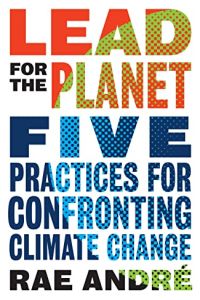Join getAbstract to access the summary!

Join getAbstract to access the summary!
Rae André
Lead for the Planet
Five Practices for Confronting Climate Change
University of Toronto Press, 2020
What's inside?
Private-sector and governmental leaders can work against climate change.
Recommendation
The consequences of global warming threaten the planet, but so far the response has been a patchwork of discrete initiatives that often dissolve amid competing interests. Professor Rae André asserts that fashioning a coherent global response will require the emergence of “systemic leaders” who can motivate disparate sectors of society to commit to a common goal. In this thorough but nontechnical manual, she shows how leaders can communicate the latest scientific findings to others, motivate people through a mix of logic and emotion, and promote problem-solving innovation through cooperation and competition. She explains how your organization can make a difference.
Summary
About the Author
Rae Andrè is professor emeritus of leadership and sustainability at Northeastern University’s D’Amore-McKim School of Business. She has authored several books including Positive Solitude: A Practical Program for Mastering Loneliness and Achieving Self-Fulfillment; Organizational Behavior: An Introduction to Your Life in Organizations; and Homemakers: the Forgotten Workers.

















Comment on this summary